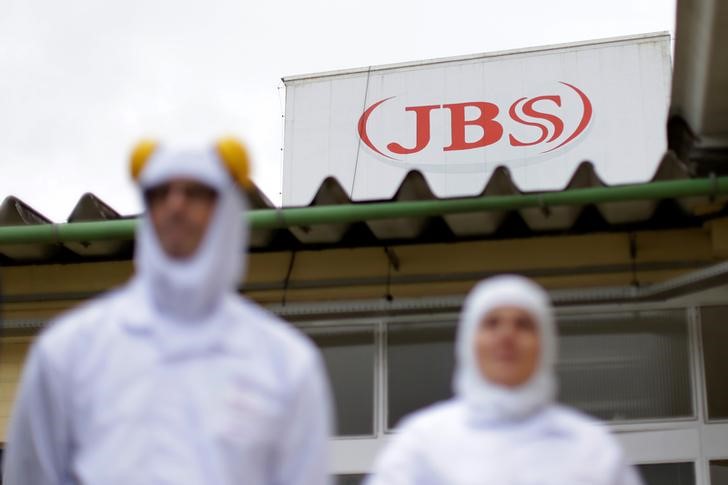(Adds details from call with analysts)
By Ana Mano
SAO PAULO, March 29 (Reuters) - JBS SA JBSS3.SA executives said on Friday the Brazilian meat company will deliver higher earnings in 2019 on strong demand for beef in the United States and Australia as well as growing Chinese demand for various proteins.
Still, first-quarter results will reflect lower cattle availability in the United States due to rains and a severe winter, which affected the company's beef and pork plants, they said.
"The good news is that the price of chicken has already started to climb in the U.S.," Guilherme Cavalcanti, chief financial officer, told analysts. This development should help JBS' Pilgrim's Pride Corp. PPC.O division, which struggled in 2018.
Management also said that, while swine fever in China is another growth driver for the global company, Asian demand in general was already strong due to the strengthening of the local economies.
"Before speaking about rising demand due to swine fever, an increase of local income had already spurred the prospect for meat sales in the region, especially beef," Chief Executive Officer Gilberto Tomazoni said.
JBS has plants certified to sell meat to China in four Brazilian states and is now developing direct relationships with distributors in the Asian country to by-pass intermediaries, management said.
The company said it may also re-direct some pork production from the United States to China if demand warrants.
JBS shares rose almost 5 percent to 16.21 reais in late morning trading after the results, which could also be bolstered by plans to raise prices at its Seara processed foods division in Brazil to pass-through the higher cost of feed.
JBS on Thursday reported fourth-quarter earnings that largely missed analysts' estimates, reflecting challenges at its U.S. chicken and pork businesses that were partly offset by the strength of its beef businesses in Brazil and North America.
A sharp drop in financial expenses helped prop up results. selling assets and paying billions of dollars in debt, JBS said it was well positioned to grow organically, citing the possibility of reopening idle plants.
It said it also expects to conclude an internal corruption investigation in the first half of the year, which in theory paves the way for a share listing in the United States.
"JBS continues to pursue a capital structure that best reflects the company's business," Tomazoni said. The company gets 75 percent of its sales from outside of Brazil, where it is currently listed.
